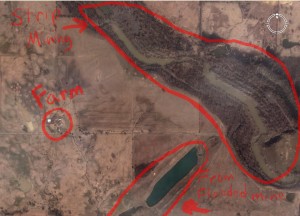Yesterday after Professor Caruso’s contracts exam, I watched a string of trailers on my laptop. Typically that activity is reserved for “movie nights” with my wife after we’ve settled our little man to sleep, unless we go for old Office episodes, but as study breaks go I needed the head clearing. We cover a lot of cinematic ground in short bursts this way though we never know how stories end. I’m even ahead of the curve with upcoming epics like Ridley Scott’s Robin Hood with Russell Crowe—yeah, saw it already, even though it’s slated for summer 2010.

Professor Caruso
But let’s talk about law. On the very first day of contracts class, we learned that the true rule of damages for breach is expectation—which is to say that when one party drops out of a contract the other party still deserves what it was expecting from the contract, albeit translated into dollars and cents. Courts step in to see that the party in breach pays up. Things get a bit more complicated from there, and in preparation for the exam, I emailed the professor about how to describe damages in a certain case, referencing layered and sophisticated legal mechanisms that we acquired over the semester. She emailed back that the answer was, go figure, just expectation. It’s no casual event for a 1L brain—mine, anyway—to collate all the doctrines we cover, but looking back on a semester quickly closing, I remember why it’s worth it.
A pair of cases in those first few days clarified two ways of calculating expectation damages—cost of completion vs. loss in value—in land leases where the land was returned broken and scored instead of flat and useable as promised. In Groves v. Wunder, the court ruled that the party in breach had to pay $60K to remove mounds of gravel even though the actual value of the lot after the fix would only be $12K. Sometimes it hurts, but a promise is a promise. Except in Peevyhouse v. Garland Coal, where the pits left after strip mining would have cost $29K to fill while only increasing the value of the lot by $300. Here, promises aside, economic waste is economic waste and the court only enforced payment of the lost $300.
One way to look at this disparity of outcomes is to say, as did the courts, that the former was a case of willful promise-breaking of a centrally contracted term to the tune of a high expectation calculation, and the latter was a case of a minor oversight of a peripheral add-on term to the tune of a low expectation calculation. Another way to see it, though, is that the former was a dispute between businesses and the wronged party had able advocates. The latter pulled a farm family into litigation without bankrolled counsel, and it turns out the land could arguably have been fixed for $5K instead of $29K. I’m imagining a lawyer swooping in to stick it to the deep-pocketed company on behalf of the trusting couple, all the while eyeing a hefty cut of the award.

Peevyhouse farm
Would a more honest claim have made a difference for the Peevyhouses? Would it have helped to champion more loudly the fact that they actually live on their pitted land (to this day) while Groves was only remediating an industrial lot in a non-residential area? Even if the Peevyhouses themselves ramped up the cost of completion estimate out of frustration, counsel can step in respectfully to help a client best achieve the fair result they are actually seeking. Everyday people can benefit from advocates rescuing their interests from minor oversights or self-serving abuse by the well-connected, or at times, shotgun attempts of individuals to right wrongs without mastering the system. In fact, the best scenario is everyday people achieving connections and a mastery of the system while still identifying with the humble places we’ve come from, so no one is stranded at the end of the day.

Professor Simons
With that aspiration in mind, and the swell of encouragement that I’m wrapped up in something meaningful with law school, I’m brought back down to earth walking out of a final remembering that, oh great, I didn’t address a super important cluster of issues that I meant to return to after I addressed another super important cluster of issues, but then I got pulled into another super important cluster of issues… Alas, if you run into me after Professor Simons’ torts exam next week, don’t ask “How did it go?” only say “Congratulations, you gave it your best effort, now a few trailers and back to work!”

One Comment
Yaminette posted on December 16, 2009 at 5:53 pm
Bravo!
Congratulations on contracts and civil procedure!
You gave it your best effort WHILE your wife was going through finals, your toddler was on a sleeping strike, never mind other important family responsibilities…
NOW go watch a few trailers and get back to work!
“Oh, the places you’ll go!”